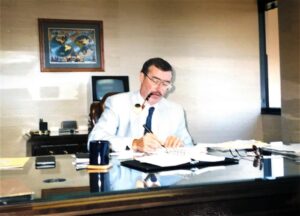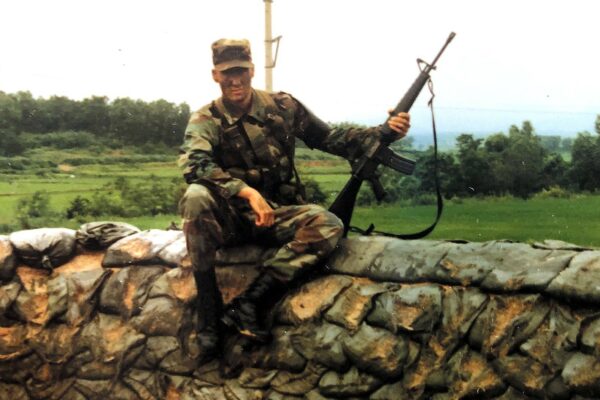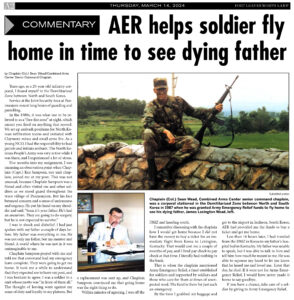Col. Sean Wead | Combined Arms Center Senior Command Chaplain | March 13, 2024
Years ago, as a 20-year-old infantry corporal, I found myself in the Demilitarized Zone between North and South Korea.
Service at the Joint Security Area at Panmunjom meant long hours of guarding and patrolling.
In the 1980s, it was what use to be referred to as a “free-fire zone” at night, which meant you fired on anything that moved. We set up ambush positions for North Korean infiltration teams and initiated with Claymore mines and small arms fire. As a young NCO, I had the responsibility to lead patrols and initiate ambush. The North Koreans People’s Army was very active while I was there, and I experienced a lot of stress.
Five months into my assignment, I was manning an observation point when Chaplain (Capt.) Ken Sampson, our unit chaplain, joined me at my post. This was not unusual, because Chaplain Sampson was a friend and often visited me and other Soldiers as we stood guard throughout the truce village of Panmunjom. But his face betrayed concern and a sense of seriousness and urgency. He put his hand on my shoulder and said, “Sean, it’s your father. He’s had an aneurism. They are going to do surgery, but he is not expected to survive.”
I was in shock and disbelief. I had just spoken with my father a couple of days before. My father was everything to me. He was not only my father, but my mentor and friend. A world where he was not in it was unimaginable to me.
Chaplain Sampson prayed with me and told me that command had my emergency leave complete. They were going to get me home. It took me a while to understand that they expected me to leave my post, and I was hesitant to agree. I was a soldier in a unit whose motto was “In front of them all.” The thought of leaving went against my sense of duty and loyalty to my platoon. But a replacement was sent up, and Chaplain Sampson convinced me that going home was the right thing to do.
Within minutes of agreeing, I was off the DMZ and heading south.
I remember discussing with the chaplain how I would get home because I did not have the money to buy a ticket for an immediate flight from Korea to Lexington, Kentucky. That would cost me a couple of months of pay, and I lived paycheck to paycheck at that time. I literally had nothing in the bank.
That is when the chaplain mentioned Army Emergency Relief, a fund established for soldiers and supported by soldiers and those who care for them at times of unexpected need. The fund is there for just such an emergency.
By the time I grabbed my baggage and got to the airport in Incheon, South Korea, AER had provided me the funds to buy a ticket and get me home.
Less than 18 hours later, I had traveled from the DMZ in Korea to my father’s hospital bed in Kentucky. My father was unable to speak, but I was able to talk to him and tell him how much he meant to me. He was able to squeeze my hand to let me know that he heard me and loved me. Later that day, he died.
If it were not for Army Emergency Relief, I would have never made it home to say goodbye.
If you have a chance, take care of a soldier by giving to Army Emergency Relief.
More on the 2024 AER Annual Campaign.
RELATED: Annual campaign kicks off at Fort Leavenworth



